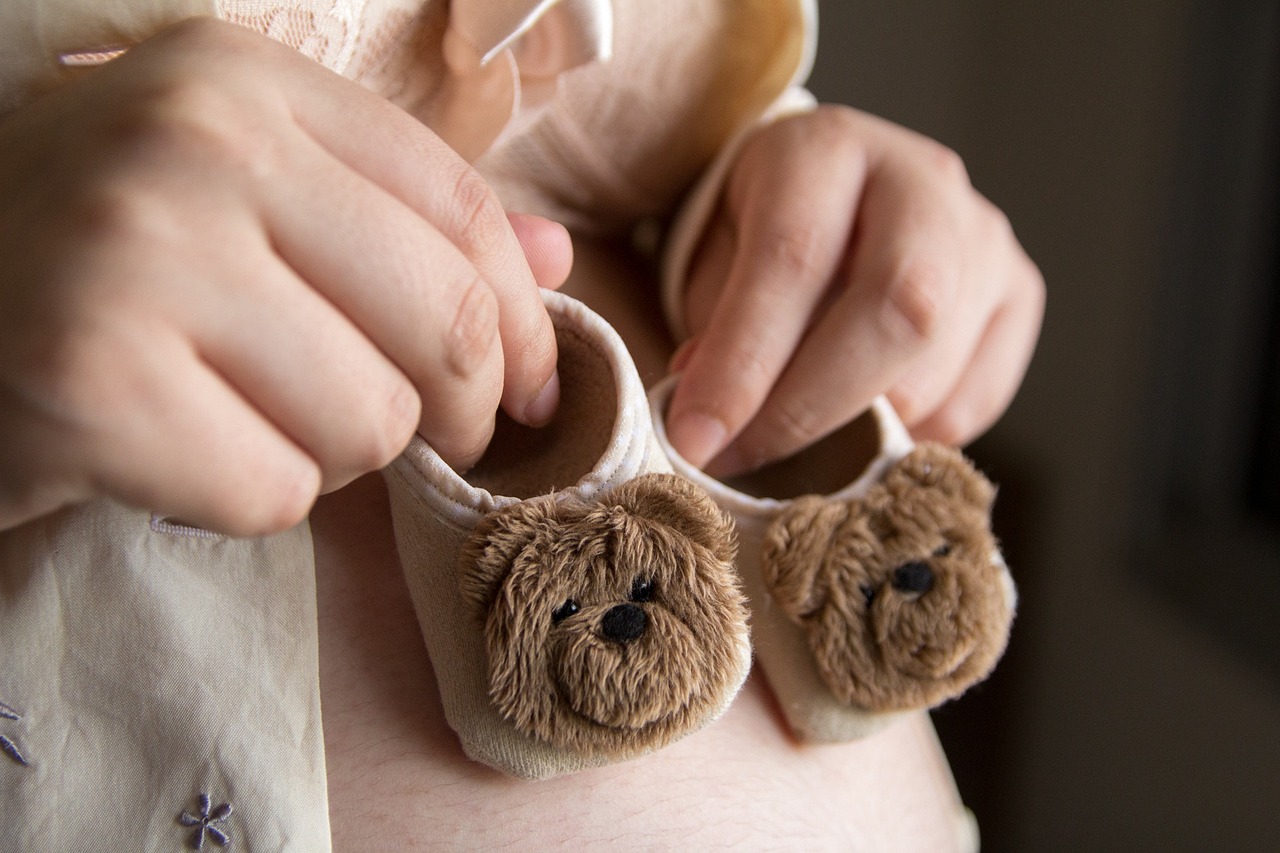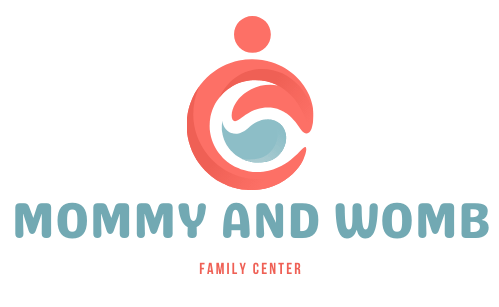Pregnancy Week 2: Early Signs and Changes

As you wait for your baby’s arrival, the early weeks of pregnancy are exciting and mysterious. You might not feel pregnant yet, but your body is changing in amazing ways. These changes help your baby grow and develop. Welcome to pregnancy week 2, a time when life’s miracle starts to show.
Your hormones are rising, and your body is getting ready to feed a new life. You might not notice any big changes yet. But, your baby is already forming, with their brain and spinal cord starting to develop.
As you move through these early weeks, it’s important to take care of yourself and your baby. We’ll look at key steps to help you start your pregnancy journey on the right foot.
Table of Contents
Take Your Prenatal Vitamins
If you haven’t yet, start taking a prenatal vitamin with at least 400 micrograms (mcg) of folic acid every day. Prenatal vitamins give you and your baby important nutrients like iron, vitamin D, and calcium. Folic acid helps lower your baby’s risk of birth defects.
It’s especially important early in pregnancy when your baby’s neural tube is forming.
The Centers for Disease Control and Prevention (CDC) says to take 400 mcg of folic acid daily for prenatal health. The US Preventive Services Task Force also says folic acid supplements help with healthy neural tube growth. The American Academy of Pediatrics notes that folic acid can cut neural tube defects by at least 50%.
Prenatal vitamins are key during pregnancy because your body needs more nutrients. For example, iron needs go up from 18 milligrams to 27 milligrams daily. Anemia in pregnancy can lead to premature delivery and low birth weight. The American College of Obstetricians and Gynecologists (ACOG) lists folic acid, iron, and calcium as essential nutrients.
Even though the FDA doesn’t regulate dietary supplements, some insurance may cover prenatal vitamins. There are many types, like capsules, beverages, gummies, and protein shakes. Talk to your healthcare provider to find the best one for you.
| Nutrient | Recommended Daily Intake for Pregnancy |
|---|---|
| Folic Acid | 400 mcg |
| Vitamin D | 600 IU |
| Calcium | 1,000 mg |
| Vitamin C | 80 mg |
| Thiamine | 1.4 mg |
| Riboflavin | 1.4 mg |
| Niacin | 18 mg |
| Vitamin B12 | 2.6 mcg |
| Vitamin B6 | 1.9 mg |
| Vitamin E | 15 mg |
| Zinc | 11 mg |
| Iron | 27 mg |
| Vitamin A | 770 mcg |
Always talk to your healthcare provider to make sure you’re taking the right prenatal vitamin. Taking care of your health now will help your baby start life strong.
Schedule a Preconception Checkup
Before you start trying to conceive, it’s wise to have a preconception checkup. This visit helps make sure your body is ready for pregnancy. Your doctor will check your medication, health history, and any pregnancy concerns.
This checkup is key to getting ready for pregnancy. It lets you:
- Discuss stopping or adjusting any prescription or over-the-counter medications that may be harmful during pregnancy.
- Identify any underlying health conditions that could impact your pregnancy or your baby’s development.
- Receive recommended vaccinations, such as the MMR (measles, mumps, and rubella) vaccine, to protect both you and your future baby.
- Discuss your family’s genetic history and the possibility of genetic screening tests.
- Address any mental health concerns and develop a plan to manage them during pregnancy.
- Ensure your oral health is in good condition, as gum disease can increase the risk of preterm birth.
By scheduling a preconception checkup, you’re taking important steps. You’ll be confident that you’re ready for a healthy pregnancy and baby.
| Statistic | Significance |
|---|---|
| CDC recommends scheduling a preconception checkup before pregnancy. | This allows you to address any health concerns and prepare your body for a healthy pregnancy. |
| Male infertility factors contribute to about 50% of infertility cases in heterosexual couples. | A preconception checkup can help identify and address any male fertility issues. |
| Rubella during pregnancy can cause miscarriage and birth defects. | The preconception checkup is an opportunity to ensure you’re up-to-date on recommended vaccinations. |
“Preparing for pregnancy by addressing any health issues and ensuring your body is in the best shape possible can make a significant difference in the health of your future baby.”
Consider Genetic Carrier Screening
When planning for a baby, think about genetic carrier screening. It checks if you or your partner might pass on serious genetic diseases to your child. These diseases are rare but can be serious.
A big study showed that 24 percent of those tested were carriers for at least one genetic mutation. Talking to a genetic counselor can help you understand your test results. They can guide you on what to do next.
Understanding Genetic Carrier Screening
Genetic carrier screening is a good idea for anyone thinking about having a baby. It’s best done before trying to conceive. But, it can also be done in the first trimester if you’re already pregnant.
- Carrier screening tests for genetic mutations that could be passed on to your child.
- Expanded carrier testing looks for dozens of genetic conditions, not just the common ones.
- LabCorp’s Inheritest® Carrier Screening panel checks over 110 disorders, including many related to Ashkenazi Jewish ancestry.
- BillionToOne’s UNITY Complete® noninvasive prenatal screening (NIPS) checks for recessive single-gene disorders using next-generation sequencing (NGS).
Talking to a genetic counselor about your screening results is crucial. They can help you understand your risks. This way, you can make choices that are best for your family.
| Screening Test | Conditions Covered | Technology |
|---|---|---|
| Inheritest® Carrier Screening | Over 110 disorders, including 40+ Ashkenazi Jewish-related | Next-generation sequencing (NGS) |
| UNITY Complete® | 7 aneuploidies, 5 recessive conditions | Cell-free DNA analysis, NGS |
pregnancy week 2
During pregnancy week 2, your body gets ready for conception. Ovulation usually happens around day 14 of your cycle. This is when a mature egg is released from your ovary, ready to meet a sperm.
Your fertility hormones like FSH and LH start to rise. These hormones help egg follicles grow in your ovaries. One follicle will become the dominant egg to be released.
You might notice changes like increased cervical fluid, slight cramping, or a slight temperature rise. These signs show your body is ready for conception. Knowing these signs is key, as they mark the most fertile time in your cycle.
“Ovulation typically occurs during week two of pregnancy, and the fertilized egg implants in the uterine lining during week three.”
Even though you’re not pregnant yet, this preconception period is vital. Start taking a prenatal vitamin and eat well. Stay hydrated too. This helps your body get ready for a healthy pregnancy.
Practice Self-Care
When you focus on your mental and physical health, you can better care for others. Start by adding healthy habits to your pregnancy journey. This includes eating well, sleeping well, and managing stress. Small steps can lead to big changes.
Fuel Your Body, Nourish Your Mind
Eating a balanced diet is key during pregnancy. You’ll need about 340 extra calories a day in your second trimester and 450 in your third. Also, take a prenatal vitamin with folic acid, iron, and calcium.
Manage Stress for a Healthier Pregnancy
Pregnancy brings excitement but also stress. Self-care like yoga, deep breathing, or meditation can help. It reduces anxiety and boosts your emotional health. Lower stress means better chances of a healthy pregnancy.
Don’t overlook sleep. Aim for 7-9 hours each night. This supports your health. By caring for yourself, you’re ready for pregnancy’s joys and challenges.
Caring for yourself is not selfish—it’s crucial. By focusing on self-care, stress management, and pregnancy preparation, you’re investing in your family’s health.
Prepare Your Body for Pregnancy
Strengthening your core is key in prenatal fitness and pregnancy prep. Building up your belly and back muscles before or during pregnancy offers many benefits. These benefits last throughout your journey and beyond.
A stronger core can prevent back problems as your baby bump grows. It may also help you recover faster after childbirth. Weight training and yoga are great for getting stronger and preparing for pregnancy’s physical changes.
- Incorporate weight-bearing exercises like squats, lunges, and planks to target your core muscles.
- Practice yoga poses that focus on core stability, such as Boat Pose, Plank Pose, and Cat-Cow Pose.
- Consult with a prenatal fitness specialist to develop a safe and effective workout plan that aligns with your fitness level and pregnancy stage.
By focusing on prenatal fitness and pregnancy preparation, you can build a strong core. This sets you up for a smoother, healthier pregnancy and postpartum recovery.
“Strengthening your core before pregnancy can make a significant difference in your overall well-being and comfort during those nine months.”
Remember, every pregnancy is unique. It’s crucial to listen to your body and talk to your healthcare provider. A strong, resilient core is a powerful asset as you start your journey of motherhood.
Avoid Harmful Substances
When you’re trying to conceive or are newly pregnant, it’s key to avoid certain substances. These include tobacco, marijuana, illegal drugs, alcohol, and too much caffeine. These can harm your fertility and the growth of your baby. So, it’s wise to cut them out as you get ready for a healthy pregnancy.
Smoking while pregnant raises the risk of miscarriage and birth defects. It can also lead to premature birth, low birth weight, and infant death. Learning disabilities and sudden infant death syndrome (SIDS) are also possible risks.
Drinking alcohol during pregnancy can cause serious problems. These include central nervous system issues, abnormal facial features, and growth problems. It can also lead to miscarriage, stillbirth, and fetal alcohol spectrum disorders.
Too much caffeine is not good for your baby’s heart rate. The U.S. Food and Drug Administration suggests keeping caffeine intake under 200 milligrams (mg) a day. That’s about the amount in one brewed cup of coffee.
| Substance | Potential Risks |
|---|---|
| Tobacco | Miscarriage, birth defects, premature birth, low birth weight, infant death, learning disabilities, SIDS |
| Alcohol | Central nervous system problems, abnormal facial features, growth issues, miscarriage, stillbirth, fetal alcohol spectrum disorders |
| Caffeine | Affects baby’s heart rate |
It’s also wise to avoid raw or undercooked meat and eggs. They can cause serious illnesses and birth defects like listeriosis and toxoplasmosis. Make sure to fully cook all meats and poultry to 145°F (63°C) to keep them safe.
By staying away from these harmful substances and being careful with your diet, you can have a healthy pregnancy. Your health is very important during this time. So, take care of yourself and make choices that support your pregnancy.
Understanding the First Three Weeks
Pregnancy is a thrilling journey, and you might be looking for early signs in weeks 1, 2, or 3. But, did you know you’re not pregnant yet? It’s a common myth, which is why you might not see any clear signs.
The first three weeks are key for your body to get ready. This is when your menstrual cycle ends, and your body prepares for conception. Even though you might not feel different, your body is hard at work.
Your Body’s Preparations
During the first three weeks, your body does a few important things:
- Releases an egg for ovulation, usually around day 14.
- Prepares the uterine lining for a fertilized egg.
- Makes more estrogen and progesterone, key hormones in early pregnancy.
It’s around week 4 that you might notice early pregnancy signs like a missed period or nausea. Before then, your body is just getting ready for the possibility of conception.
So, while you might be waiting for those first signs, remember the first three weeks are all about preparation. Your body is preparing for the incredible journey ahead, even if you can’t feel the changes yet.
“Pregnancy is a much anticipated time in your life, and you may be eagerly watching for those very early signs in weeks 1, 2, or 3. But, did you know that you’re not actually pregnant during these first couple of weeks?”
Taking Precautions in Early Pregnancy
Even in the early stages of pregnancy, it’s important to take precautions. You might not feel any symptoms yet. But it’s key to eat well, drink plenty of water, manage stress, and exercise regularly.
One crucial step is to start taking a prenatal vitamin. It should have at least 400 micrograms of folic acid every day. This B vitamin is vital for preventing birth defects, especially when your baby’s neural tube is forming.
- Stop smoking and drinking alcohol early on.
- Avoid cat litter and contaminated soil to prevent toxoplasmosis infection.
- Practice good hygiene, like washing your hands often and avoiding unpasteurized foods, to avoid infections.
- Make an appointment for a preconception checkup. Talk about any medical conditions or genetic risks that might need extra care during your pregnancy.
By taking these steps early on, you can ensure a healthy pregnancy. This sets your baby up for a great start in life.
| Recommended Daily Intake During Pregnancy | Amount |
|---|---|
| Caffeine | Below 300 mg (about 2 cups of coffee) |
| Iron | 16-20 mg through a daily multivitamin |
| Folic Acid | 0.4 mg per day through a multivitamin |
“Proper lifestyle adjustments and preventive measures in early pregnancy can significantly improve the health of both you and your baby.”
To find out what happens in the third week of pregnancy, click on the link below
Conclusion
This article has given a detailed look at the early signs and changes in pregnancy week 2. Even if you’re not pregnant yet, it’s important to know what’s happening. We talked about starting prenatal vitamins and scheduling a preconception checkup.
It also covered what’s happening in your body during the first three weeks. You might not feel any symptoms yet. The article also gave tips on self-care and preparing your body for pregnancy.
By understanding these early stages, you can support a healthy pregnancy from the start. In the 2nd week of pregnancy, there’s a good chance of conception. This is when the egg and sperm usually come together.
Remember, early pregnancy is a time of excitement and anticipation. It can also be a bit uncertain. But by staying informed and taking care of yourself, you’re on the path to a healthy pregnancy and a happy baby. Stay positive and enjoy this special time as you start your journey to parenthood.






